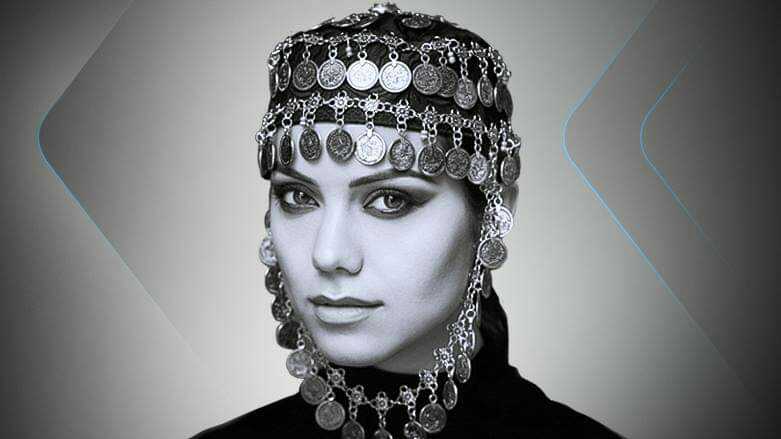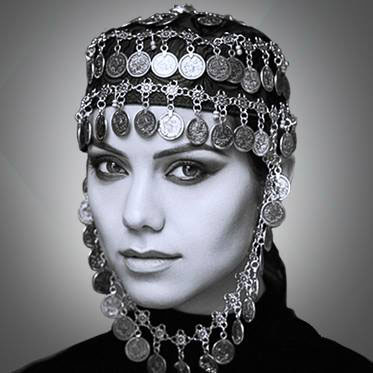Feminism means creating equal opportunities, regardless of gender

Today, I salute women all around the world on the eve of International Women’s Day. The struggle is real and far from over, but our victory march has been set into motion.
Once again, it’s time to remember all the brave women throughout history who fought for our rights, from voting to access to jobs and education, breaking the glass ceiling, political representation, decision making, and simply participating in changing the world for the better.
Globally, women share a heritage of suppression, patriarchy, and the quest for gender equality. But today we are witnessing a time of unprecedented levels of female participation in civil-society worldwide. Most women are no longer afraid to speak up and others often speak on behalf of those who remain intimidated into silence.
To my continual surprise, it still holds true that this kind of cooperation is feared by so many men. Why is that? Have they not gotten the message that it’s of mutual benefit?
It has been proven time and again that empowering women and girls multiplies positive effects within society to drive economic growth and development. One of my favorite African proverbs is, “If you educate a man, you educate an individual. But if you educate a woman, you educate a nation.”
Educating girls gives them the freedom to make decisions to improve their lives, which has deep social implications. According to the World Bank, giving girls access to education is central for the eradication of global poverty, since better-educated women tend to be healthier and participate more in formal labor markets. They will also have a say about if, when, and how they want to get married and start a family.
UN Women has set a goal to achieve global gender equality by 2030. It is very ambitious, a goal that will require that each and every woman (and also men) to join the daily fight to tackle injustice.
An estimated 130 million girls worldwide do not attend school and more than 15 million girls of primary school age will never even be able to enter a classroom before the time they reach adulthood. The International Labour Organization estimated in 2016 that there are 40.3 million victims of human trafficking globally, 75 percent of them women and girls that are often forced into sex work and/or slavery. In so-called advanced countries, such as the US, a recent survey showed that 81 percent of women have experienced sexual harassment at least once in their lifetime.
Even environmental issues seem to have a gender bias. According to the UN, women face higher risks and greater burdens from the impacts of climate change, especially in situations of poverty – and guess what? The majority of the world’s poor are women.
Climate change is real and feminists have to join efforts to push corporations and governments to act on it. International Women’s Day should also be about highlighting the necessity of saving our planet. The unequal participation of women in decision-making processes and relevant labor markets such as the clean energy industry often prevents women from contributing to climate-related planning, policy-making, and implementation.
Hope springs from young leaders like Greta Thunberg, a Swedish climate activist who is inspiring and giving a voice to a generation that seems to value actions more than words. Again, to my daily surprise, even a 16-year-old like her has instilled fear in some men who attack her in the most despicable ways. She is belittled as a girl that is too emotional, too dramatic, and unrealistic. Weekly school strikes and climate marches all over Europe, they say, are just an excuse for lazy youth to avoid going to school. It is not surprising to note that such attacks often come from politicians and businessmen who have some sort of interest in the male-dominated industries of oil, coal, and gas.
And then there is another sad reality for female activists; we keep losing them. Vulnerable to all sorts of threats and intimidations, governments all around the world fail to protect women who speak out. In the last two years, dozens of female environmental activists, rights advocates, and journalists were killed while working to improve the current situation.
Killing is not the only means of intimidation. Rape and sexual violence have long been used as a weapon of war, with echoes of the horror stories from Rwanda or the systematic persecution by ISIS against Yezidi women and girls still reverberating. While international law has come far enough to recognize rape and sexual violence as individual crimes against humanity and to clearly state that such acts constitute violations of the laws and customs of war, actual prosecution of them is still sorely lacking.
Every day, women such as Nobel Peace Prize winner Nadia Murad and human rights lawyer Amaal Clooney are calling on world governments to act. They are two women who are contributing to a much-needed challenging of stereotypes. One of them didn’t accept to be remembered as solely a victim and rose up to fight and bring justice to those who have committed genocide against her people. In Nadia’s own words, “I want to be the last girl in the world with my story.” The other woman, an incredibly successful human rights lawyer and herself a refugee of war, shows as well that you cannot easily reduce a woman anymore merely to her looks, her Instagram likes, her tabloid stories, outfits, or what famous man she has married. These two are modern heroines.
Inequality and oppression that women face is not exclusively a thing of the developing world. These concepts know no borders and do not discriminate between cultures, religions, and societies. Misogyny – which translates to the dislike of, contempt for, or ingrained prejudice against women – is universal and can be found in most societies, even those that pride themselves on being progressive and civilized.
The West may seem to spearhead the quest to achieve gender equality when compared to many other places in the world, but misogyny can come in many forms. Contemporary Western culture has transformed into a hypersexualized society, with Western film industries acting as a mirror of its society’s view of the female body. Studies have shown that female bodies are consistently more likely than their male counterparts to be shown in some form of sexualized attire or nudity.
In the US, many female actors have come forward, inspired by the #MeToo movement, to highlight the repeated discrimination, harassment, and abuse they have experienced throughout their acting careers. And it has not stopped there; women from many societies all over the world have come forward to highlight their struggles.
Growing up in The Netherlands, I considered myself very lucky in many ways, especially compared to my peers in the Middle East. I was given the space to become an emancipated woman. I owe that to the many Dutch women who have influenced me, time and again. They are independent, strong, beautiful women, but still face their own struggles. There is still no equal pay for the same work done by men. Women are expected to be amazing mothers, housewives, and look pretty, while at the same being independent, career-oriented, and ambitious.
I have so far highlighted some of the struggles and issues that women face worldwide and it might seem that I am avoiding injustices done to me and so many other women in my country of origin, Kurdistan. Despite all its progress, it is still a predominantly male-dominated society.
I am proud of all the achievements of brave Kurdish women, from ruling kingdoms to our gracious female Peshmerga fighting ISIS on the frontlines side by side with their brothers and husbands. Our women are speakers of parliament, participate in politics, run households, participate in the arts, and shape culture. But gender relations are still very far from ideal. Historically, Kurdish women have been very emancipated, but decades of war and conflict in the 20thcentury have catapulted us back to the Middle Ages.
How can I ignore the news of horrendous and barbaric practices of killing women for the sake of a man or a family’s “honor?” Some families still keep girls out of school to marry them off young and the tradition of female genital mutilation persists in some pockets of society. Women are also often treated as second class citizens in front of legal and religious courts.
It is also hard to ignore the fact that our media is being run mostly by men. I have seen first-hand that women, just like in Hollywood, are too often objectified and not taken seriously. Correction – of course, we are taken “seriously” and are visible, but only as long as we stay within male-given norms. We become invisible, disappear, and are mobbed the moment we dare to set our own rules of the game.
When it comes to my own story, my fingers type with extreme hesitation. For now, I can still just reveal bits and pieces of the story of injustice committed against me, a story that involves gender discrimination, harassment, and abuse of all forms. It follows a girl that was once everybody’s little darling, so long as she obeyed those rules of the game. She became the girl who was booed, mobbed, and boycotted in the Kurdish media when she strayed from the dictated path.
My progressive art, personality, and the success I had with it – also beyond the borders of Kurdistan – was just too much to take for many men in the TV and music industry. It led Mullahs to call on the people of Kurdistan to boycott and lynch me via local and international media outlets such as BBC World News. Some said I should be hanged with a burning rope of fire around my neck.
It is hard to describe the physical and psychological pain and agony I experienced as a result. Every day I walk in this world with a heavy burden on my back, packed with the baggage of injustice committed against me by men.
They distorted my image in the media by attacking me and making up stories about me. How easily people, including many women, believed them. At some point, it went as far as to play some women against me, used as a tool to shut me down, take my voice, and make me irrelevant.
This year, on International Women’s Day, I am asking the Kurdish government directly to put more women in charge of Kurdish media. I am asking for the protection of women in the media and the arts in general, for it to investigate and hold media officials accountable for gender-based misconduct, and to help set standards and rules. I also ask the international community and organizations such as UN Women to help local females to strive.
Empowering women and girls also means educating boys about the beauty of equal societies that offer similar opportunities for all, no matter their gender, race, sexual orientation, or political affiliation. That is how our women can be the cause of sustainable peace, and not only in the Middle East.
Keep on marching! The seeds that were planted by generations of women before us have become trees, and now it’s upon us to sustainably harvest the fruits.
Dashni Morad is a Kurdish singer, songwriter, television presenter, and activist for human rights and the environment. Born in Kurdistan, she moved to Holland as a refugee with her family in 1997. She was one of the first Kurdish female artists to appear as a pop singer/dancer and broke the glass ceiling for other girls to pursue their dreams in that field.
The views expressed in this article are those of the author and do not necessarily reflect the position of Kurdistan 24.
Editing by John J. Catherine
